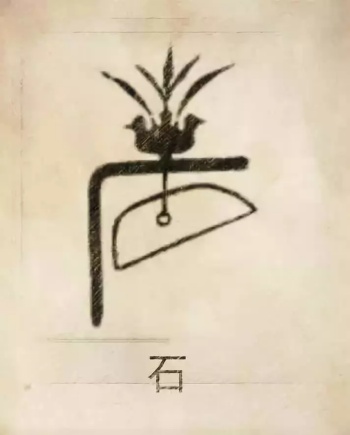The Shi(shí) surname, meaning "stone" in Chinese, symbolizes strength and permanence. Ranked 61st among Chinese surnames today, its history spans wars, cultural exchanges, and remarkable stories of loyalty. For readers curious about Chinese heritage, the Shi clan offers a fascinating lens into how family names reflect China's multicultural evolution.

Ⅰ、Surname origin
1. Ji surname orthodoxy
Shi Que: A revered statesman from the State of Wey, Shi Que famously prioritized justice over family ties by executing his treasonous son. This "placing justice above family loyalty" ethic, recorded in The Zuo Tradition, established Shi as a surname of moral authority.
2. Royal Branches:
Descendants of Song and Zheng nobility adopted "Shi" from their ancestors' honorary titles, like Prince Duan of Song.
3. Cultural Fusion
Shi Le: A former enslaved person turned emperor, this Jie ethnic leader founded the Later Zhao dynasty (319–351 CE), adopting "Shi" to unite northern Chinese and nomadic tribes.
Silk Road Contributions: Persian merchants and migrants from ancient Stone City (modern Uzbekistan) carried the surname into Tang China, enriching its diversity.
Ethnic Adaptations: Mongolian Chaolutude ("eternal rock") and Hui Muslim clans later adopted "Shi," embodying China’s pluralistic traditions.
Ⅱ、Historical celebrities
1. Leaders and Innovators
Shi Le pioneered inclusive governance, recruiting Han scholars to bridge cultural divides.
Shi Heng defended Beijing during the 1449 Mongol invasion, though his later political ambition drew mixed historical reviews.
2. Cultural Icons
Shi Shen: Co-authored the Gan Shi Star Catalog (4th century BCE), mapping 800+ stars – a feat unmatched in the West for centuries.
Shi Tao: A Qing dynasty painter whose landscapes redefined Chinese art with the philosophy: "Sketch all strange peaks to find your truth."
3. Modern Trailblazers
Dr. Shi Qingyun: Revolutionized fingerprint recognition technology in the 1980s.
Shi Ziyi: A Taiwanese business strategist who transformed manufacturing practices in Asia.
Ⅲ、Cultural Symbols:
1.The Stone Metaphor
Resilience: "Shi" inspired proverbs like "A sincere heart can melt metal and stone", emphasizing perseverance.
Protection: Stone tablets inscribed "Shi Gan Dang" ward off evil in Chinese folk traditions, akin to Western "warding charms."
2.Family Values
Ancestral Halls: Major clans identify with "Six Harmonies Hall", honoring Shi Que’s six principles for societal harmony.
Global Networks: Organizations like the World Shi Clan Association connect descendants worldwide, preserving traditions through digital archives.
Ⅳ、Social impact
1.Demographics:
4.2 million bearers, concentrated in Sichuan, Henan, and Fujian. Diaspora communities thrive in Southeast Asia and North America.
2.Modern Relevance:
From medical pioneers (Shi Xiaoshan’s bone-healing techniques) to Silicon Valley tech leaders, the surname adapts while honoring its past.
Conclusion:
The Shi surname isn’t just a name – it’s a chronicle of China’s ability to absorb and reinvent. From Shi Que’s moral courage to Shi Le’s multicultural empire, its stories resonate with universal themes: integrity, adaptation, and resilience.